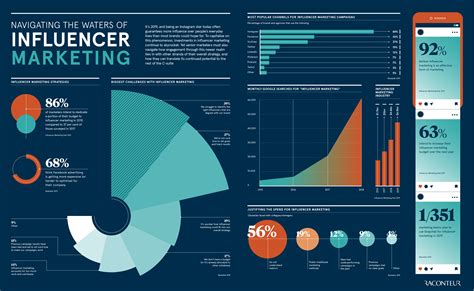In the expansive realm of digital marketing, influencer marketing has burgeoned into a formidable industry, commanding a staggering $21 billion. This phenomenon is not merely about leveraging the vast followings of influential figures but intertwines deeper issues of ethics, consumer trust, and the very nature of advertising. Influencers, often perceived as more approachable and relatable than traditional celebrities, wield substantial power in shaping consumer preferences and behavior. However, this influence raises significant ethical questions, particularly when disclosure and genuine usage of the products are ambiguous.
The blurred lines between genuine advocacy and paid promotion in influencer marketing significantly impact consumer trust. Several commentators express disillusionment with the apparent authenticity that influencers are supposed to offer. For instance, when an influencer endorses a product, the underlying presumption is that this endorsement comes from a place of genuine appreciation and regular use. Yet, this is not always the case, as evidenced in various consumer anecdotes where influencers promote products that they neither use regularly nor genuinely endorse, casting doubts on their authenticity and potentially misleading consumers.
This issue is further compounded by the strategic manipulation of relationships that influencers often engage in. Known as ‘parasocial relationships’, influencers create an illusion of a personal connection with their followers through direct engagement and seemingly personal content. This tactic, while effective in building attachment and trust, can be ethically questionable when used primarily as a lever to push products. The immersion of influencers into their followers’ daily lives through platforms like Instagram and TikTok makes the endorsements seem more like personal recommendations rather than paid advertisements, intensifying the potential for consumer manipulation.
Moreover, the nature of compensation in influencer marketing varies, raising questions about the neutrality and honesty of the endorsements. Discussions reveal that some influencers receive free products, significant discounts, or direct payments, which may not always be transparently disclosed. This lack of transparency can skew the perceived value and effectiveness of the endorsed products, as the influencers’ praise may stem more from financial incentives than actual merit. Thus, the reliability of influencer recommendations remains a contentious issue, with potential repercussions for consumer trust and marketing ethics.
The relationship between influencers and brands is symbiotic yet precarious. Brands benefit from the nuanced and targeted access to specific demographics that influencers provide. However, this relationship can turn detrimental if not handled with transparency and ethical consideration. The consumers’ ability to discern the authenticity of influencer endorsements is often overestimated. The fine print and the subtle cues of sponsored content are not always apparent to the average viewer, leading to an information asymmetry that benefits the influencer and the brand at the consumer’s expense.
In conclusion, as the influencer industry continues to expand and evolve, a critical examination of its practices is imperative. Consumers must be equipped with the knowledge to critically evaluate the endorsements they encounter, and regulators may need to step up enforcement of existing advertising laws or develop new guidelines to better address the unique challenges of this digital marketing frontier. The efficacy and ethics of influencer marketing remain under intense scrutiny, posing fundamental questions about the future of consumer trust and the integrity of digital advertising channels.


Leave a Reply